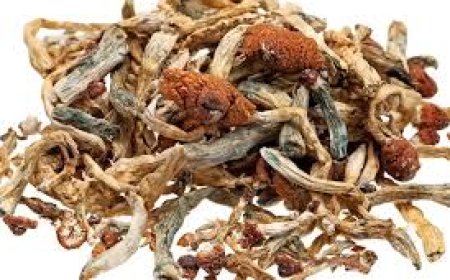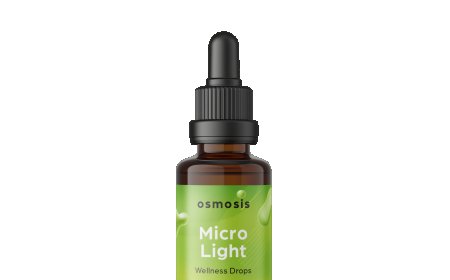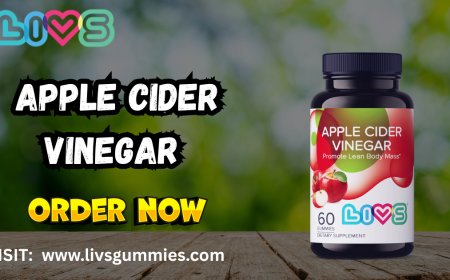Can Cannabis Trigger Acne? A Deep Dive Into the Question
Curious about the link between cannabis and acne? This deep dive explores how THC, CBD, and different forms of cannabis use may affect skin health. Learn whether cannabis can be an acne trigger, how it impacts hormones, and what research says about its role in breakouts.
Cannabis is widely used for both recreational and medicinal purposes, with growing legalization and social acceptance across the world. But as more people incorporate cannabis into their lifestyle, questions arise about its potential side effects, particularly regarding skin health. One common query is:Can cannabis trigger acne? In this article, well explore the scientific evidence, possible causes, and tips for preventing breakouts related to cannabis use.
Understanding Acne: The Basics
Acne is a skin condition that occurs when hair follicles become clogged with oil (sebum) and dead skin cells. It can result in whiteheads, blackheads, pimples, or even cysts. Common factors contributing to acne include:
-
Hormonal changes
-
Excess oil production
-
Inflammation
-
Bacterial growth (especially Propionibacterium acnes)
-
Certain medications or lifestyle choices
Cannabis and Its Effects on the Body
Cannabis contains active compounds called cannabinoids, the most notable being THC (tetrahydrocannabinol) and CBD (cannabidiol). These interact with the bodys endocannabinoid system (ECS), which regulates various processes such as mood, appetite, sleep, and immune functionincluding skin health.
Different forms of cannabis consumption include:
-
Smoking
-
Vaping
-
Edibles
-
Topicals (creams, balms)
Each method interacts with the body differently and may affect the skin in unique ways.
Does Smoking Weed Cause Acne?
The direct link between smoking weed and acne isnt fully established, but several indirect factors suggest it can contribute to breakouts in certain individuals:
1. Hormonal Fluctuations
Cannabis useespecially THCmay influence hormone levels, including testosterone. Elevated testosterone can increase oil production in the skin, a known trigger for acne. This hormonal shift could explain why some people notice acne flare-ups after cannabis use.
2. Increased Sebum Production
Some studies suggest that cannabinoids can affect sebaceous glands, increasing sebum production. Excess oil can clog pores and lead to acne, especially in individuals already prone to oily skin.
3. Inflammation and Immune Response
While CBD is known for its anti-inflammatory properties, THC may trigger an immune response in some users. Inflammation can worsen existing acne or lead to new breakouts.
4. Diet and Lifestyle Changes
Cannabis often increases appetitecommonly referred to as the munchies. Cravings for sugary or greasy foods can contribute to poor skin health. Does Smoking Weed Cause Acne? Diets high in refined sugar and dairy are linked to increased acne severity.
5. Skin Contact and Hygiene
Handling cannabis or touching your face with contaminated hands or paraphernalia (pipes, joints) can transfer bacteria and oils, increasing the risk of clogged pores.
6. Stress and Sleep Disruption
Although some use cannabis to manage stress, it can affect sleep quality and anxiety levels in others. Stress and poor sleep are both linked to hormonal imbalances and acne flare-ups.
What About CBD? Does It Cause Acne?
CBD is a non-psychoactive cannabinoid praised for its therapeutic benefits, including anti-inflammatory and antioxidant properties. Interestingly, topical CBD may help reduce acne by:
-
Regulating oil production
-
Reducing inflammation
-
Fighting bacteria on the skin
So while THC might indirectly contribute to acne in some users, CBD may actually improve skin conditionsespecially when applied topically.
Cannabis and Skin Types: Who Is More Vulnerable?
Not everyone who uses cannabis will experience acne. Risk factors include:
-
Oily or acne-prone skin
-
Hormonal imbalances (e.g., PCOS)
-
High-stress lifestyle
-
Poor skincare or hygiene habits
Understanding your skin type and how your body reacts to cannabis can help manage potential side effects.
How to Prevent Acne While Using Cannabis
If you suspect that cannabis is contributing to your breakouts, here are some tips to reduce its impact on your skin:
1. Maintain Good Skincare Habits
Use a gentle cleanser, non-comedogenic moisturizer, and avoid harsh exfoliants. Wash your face regularly, especially after smoking or vaping.
2. Keep Hands and Tools Clean
Always wash your hands before touching your face or rolling joints. Clean bongs, pipes, or vaporizers regularly to reduce bacteria exposure.
3. Watch Your Diet
Try to resist junk food cravings. Instead, opt for skin-friendly snacks like fruits, nuts, or vegetables.
4. Hydrate
Cannabis can cause dry mouth and dehydration, which may affect skin health. Drink plenty of water to keep your skin balanced.
5. Try CBD Instead of THC
If THC seems to be the culprit, consider switching to CBD-rich products that offer calming benefits without the psychoactive effects.
6. Monitor Dosage and Frequency
Cutting back on cannabis use may help if you notice a pattern of breakouts. Keep a diary to track skin changes in relation to your consumption.
When to See a Dermatologist
If acne persists or worsens despite lifestyle changes, consult a dermatologist. They can help determine if cannabis is a contributing factor and recommend personalized treatment options. A skin specialist may suggest:
-
Prescription topical treatments
-
Oral medications
-
Hormone testing
-
Skincare product recommendations
Q: Can smoking cannabis cause acne?
A: Smoking cannabis may contribute to acne in some individuals due to the introduction of toxins and increased inflammation. Additionally, smoking can dehydrate the skin and impair circulation, which might exacerbate breakouts.
Q: Does THC or CBD affect acne differently?
A: Yes. THC (tetrahydrocannabinol) may influence hormone levels like testosterone, which can increase oil production and potentially worsen acne. In contrast, CBD (cannabidiol) has anti-inflammatory and oil-regulating properties, and some studies suggest it may actually help reduce acne.
Q: Can edibles or oils still trigger acne?
A: While edibles and oils avoid the harmful effects of smoke, they can still influence hormones or oil production depending on their cannabinoid content and individual skin sensitivity.
Q: Does cannabis affect hormones that cause acne?
A: Cannabis, especially strains high in THC, may influence hormones such as testosterone and cortisol. These hormonal fluctuations can potentially lead to increased sebum production and clogged pores.
Q: Is topical cannabis good or bad for acne-prone skin?
A: Topical cannabis products, particularly those with CBD, may help reduce inflammation, soothe the skin, and regulate oil production. However, results can vary depending on the product formulation and skin type.
Q: What are other lifestyle factors linked to cannabis that may worsen acne?
A: Cannabis use may be associated with lifestyle habits such as poor diet, irregular sleep, or hygiene lapsesfactors that can also contribute to acne.
Q: Should I stop using cannabis if I have acne?
A: It depends on the individual. If you notice that your breakouts worsen with cannabis use, it may be worth reducing or changing how you consume it. Consulting a dermatologist or healthcare professional is recommended.
Final Thoughts
So, can cannabis trigger acne? The answer isnt straightforward. While cannabisparticularly THCmay indirectly contribute to breakouts through hormonal changes, increased oil production, and lifestyle shifts, it affects everyone differently. On the other hand, CBD may have beneficial effects for acne-prone skin.
If you use cannabis and struggle with acne, consider how your method of use, hygiene, diet, and skincare routines may be playing a role. With the right approach, its possible to enjoy the benefits of cannabis without sacrificing your skin health.
For more natural health tips and non-prescription solutions, visit ZonderRecept.orgyour trusted resource for holistic wellness.










































